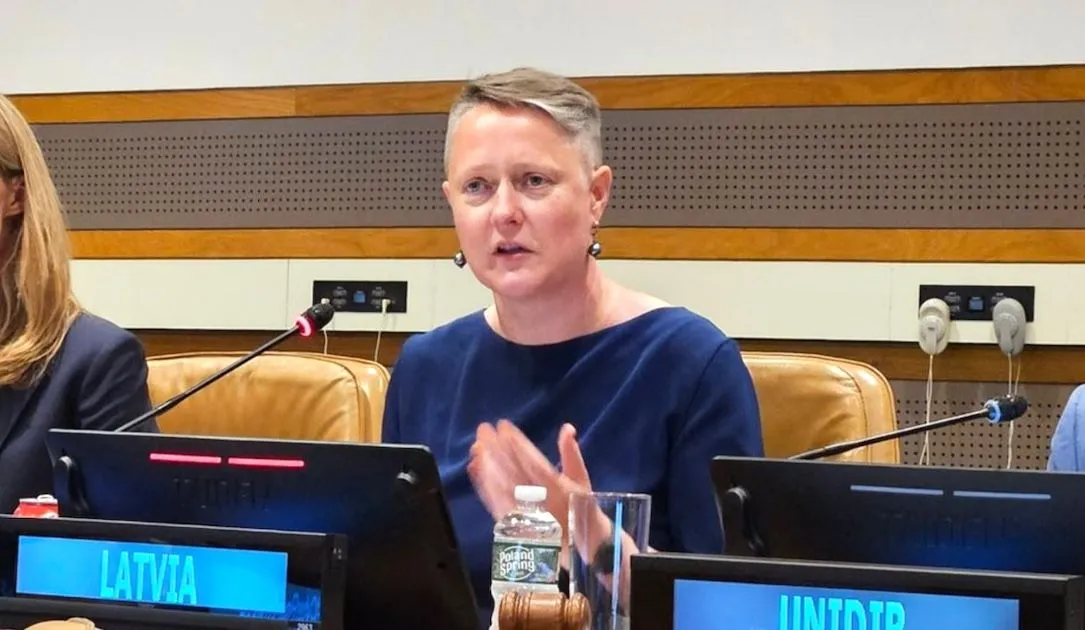Summary: Latvian cybersecurity officials report a surge in cyberattacks from politically motivated hackers linked to Russia and Belarus, targeting government and critical infrastructure websites. These attacks, primarily distributed denial-of-service (DDoS), aim to disrupt access rather than steal data, coinciding with Latvia’s support for Ukraine amidst ongoing geopolitical tensions.
Threat Actor: NoName057(16), Anonymous Guys | NoName057(16), Anonymous Guys
Victim: Latvian Government and Critical Infrastructure | Latvian Government
Key Point :
- Increased cyberattacks on Latvia are linked to its military support for Ukraine.
- Most attacks are DDoS, temporarily disrupting targeted websites rather than stealing data.
- Latvia’s cybersecurity team is prepared but faces challenges due to the hackers’ adaptability.
- Hacktivist groups claim responsibility, framing their actions as retaliation against Latvia’s support for Ukraine.
- The attacks are part of a broader “hybrid war” strategy aimed at undermining public trust in state institutions.

Politically motivated hackers linked to Russia and Belarus are targeting Latvian government and critical infrastructure websites in a new wave of cyberattacks, according to Latvian cybersecurity officials.
The goal of the attacks is to disrupt access to websites rather than to steal sensitive data, said Baiba Kaskina, head of the Latvian сomputer emergency response team (CERT), in an interview with local media.
Hackers aligned with Russia and Belarus have ramped up their attacks on Latvia since Moscow’s invasion of Ukraine. In an interview with Recorded Future News two years ago, Varis Teivans, the deputy manager of Latvian CERT, said that pro-Russian hacktivists and nation-state hackers were targeting local government, critical infrastructure and private businesses.
This August, the attacks have increased again, according to Kaskina, and are likely related to Latvia’s new aid package to Kyiv, which includes drones and air defense systems.
“After another aid package was awarded to Ukraine, these attacks were quite expected. They also occurred in previous years — during various holidays and following political decisions,” said Vineta Sprugaine, a representative of the Latvian State Radio and Television Center.
Most of the incidents were distributed denial-of-service (DDoS) attacks, which only managed to temporarily slow down the operation of targeted websites. According to Kaskina, the volume of these attacks could be “very large,” and they are “well customized” to the targeted websites.
Earlier in August, Latvia reported a large-scale attack on the Unified Website Platform (TVP) — a centralized management system used to create and maintain state and local government websites. The attack, which persisted for nearly two days, disrupted the operations of many state institutions, including the website of the Cabinet of Ministers.
Intensīvu kiberuzbrukumu dēļ Tīmekļvietņu vienotās platformas (TVP) mājaslapās periodiski novērojami darbības traucējumi – lēndarbība vai vietņu nepieejamība.
Šobrīd TVP darbība vērtējama kā stabila.
Atbildīgie dienesti turpina risināt situāciju, lai pilnībā atvairītu uzbrukumus.— Valdības māja (@Brivibas36) August 20, 2024
Latvian cybersecurity services attribute the latest attacks to politically motivated hackers — hacktivists — “who very openly support Russian aggression and policy.”
Russia-linked hacktivist groups such as NoName057(16) and Anonymous Guys claimed responsibility for the recent attacks on Latvian websites. “We continue to punish Russophobic Latvia for aiding the criminal Kiev regime,” NoName057(16) wrote in a statement on Telegram.
Kaskina said that Latvia was “well prepared” for the Russian cyberattacks, but they still could be difficult to fight against since hackers frequently change their targets and adapt their techniques.
She called Russian attacks on Latvia and other Baltic states part of a “hybrid war” meant to “create panic in society and undermine trust in state institutions.”
“Sometimes we win, sometimes they win,” Kaskina said, adding that the website malfunctions “are a small price to pay for supporting Ukraine’s fight for freedom.”
Recorded Future
Intelligence Cloud.
Source: https://therecord.media/latvia-website-attacks-attributed-to-russia-belarus